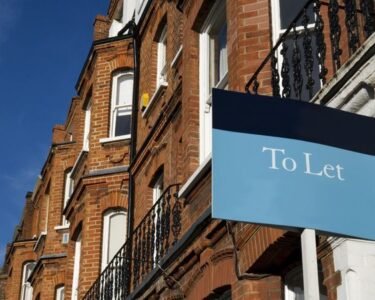BORROWERS hoping to get their hands on a sub 4% from a major lender need to move fast.
Santander is withdrawing its five-year 3.99% fixed rate mortgage at the end of tomorrow (10pm, Friday February 21).
The lender said it would stop offering the deal after an increase in market rates.
However, the lender’s two-year equivalent 3.99% fix will remain in place for the time being.
The deals were only launched by Santander on Thursday last week.
Co-operative Bank has also announced that it will withdraw some of its fixed rates from close of play tomorrow.
It comes after markets were this week surprised by a jump in inflation to a 10-month high of 3%.
Mortgage experts suggested that deals below 4% may now be short-lived.
Smaller lender Danske Bank currently has a two-year fix at 3.97% for home movers.
Stronger inflation has dampened hopes for rate cuts from the Bank of England.
The Bank recently dropped the base rate from 4.75% to 4.5% earlier this month and had been expected to cut rates a further three times this year.
The Bank’s base rate impacts the pricing of borrowing offered by lenders such as mortgages.
However, a number of lenders have cut rates offering some good news for anyone looking to fix into a mortgage.
Major lender Nationwide Building Society will reduce rates by up to 0.33 percentage points tomorrow, with its rates now starting from 4.09%.
The new rates include a five-year, fixed-rate at 60% LTV with a £1,499 fee with a rate of 4.09%, having been reduced by 0.05% percentage points.
Halifax will also be cutting rates tomorrow while Barclays has also trimmed existing customer products. Skipton Building Society has also revealed it is lowering rates.
Borrowers have been urged to act fast if they are looking to secure a deal.
David Hollingworth, associate director at broker L&C Mortgages said: “Although the movement in swap rates, which are a key indicator for fixed mortgage rates, has not been enormous it does look to be enough to put some of the very lowest rates in peril.
“It’s not a need for panic but borrowers that have been considering a new deal may want to reach a decision sooner rather than later in case of more movement in rates.
“The constant shift in mortgage rates can be frustrating but the good news is that the longer-term expectation for Bank of England base rate is that it will continue downwards as the year progresses. What we don’t know is when it will next fall and how far.”
How to get the best deal on your mortgage
IF you’re looking for a traditional type of mortgage, getting the best rates depends entirely on what’s available at any given time.
There are several ways to land the best deal.
Usually the larger the deposit you have the lower the rate you can get.
If you’re remortgaging and your loan-to-value ratio (LTV) has changed, you’ll get access to better rates than before.
Your LTV will go down if your outstanding mortgage is lower and/or your home’s value is higher.
A change to your credit score or a better salary could also help you access better rates.
And if you’re nearing the end of a fixed deal soon it’s worth looking for new deals now.
You can lock in current deals sometimes up to six months before your current deal ends.
Leaving a fixed deal early will usually come with an early exit fee, so you want to avoid this extra cost.
But depending on the cost and how much you could save by switching versus sticking, it could be worth paying to leave the deal – but compare the costs first.
To find the best deal use a mortgage comparison tool to see what’s available.
You can also go to a mortgage broker who can compare a much larger range of deals for you.
Some will charge an extra fee but there are plenty who give advice for free and get paid only on commission from the lender.
You’ll also need to factor in fees for the mortgage, though some have no fees at all.
You can add the fee – sometimes more than £1,000 – to the cost of the mortgage, but be aware that means you’ll pay interest on it and so will cost more in the long term.
You can use a mortgage calculator to see how much you could borrow.
Remember you’ll have to pass the lender’s strict eligibility criteria too, which will include affordability checks and looking at your credit file.
You may also need to provide documents such as utility bills, proof of benefits, your last three month’s payslips, passports and bank statements.





